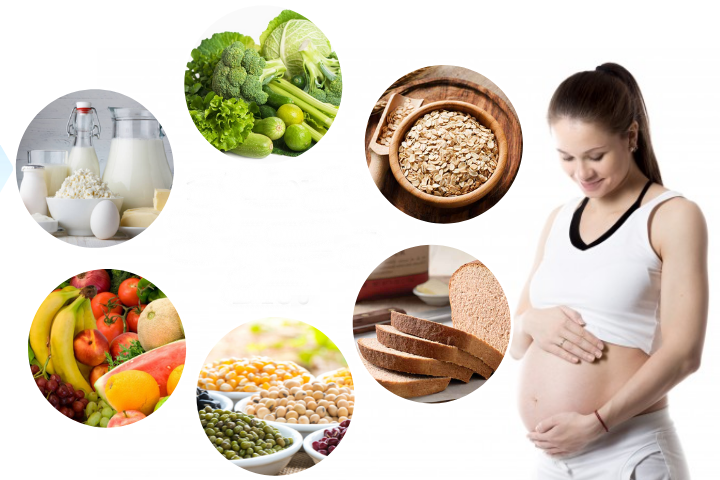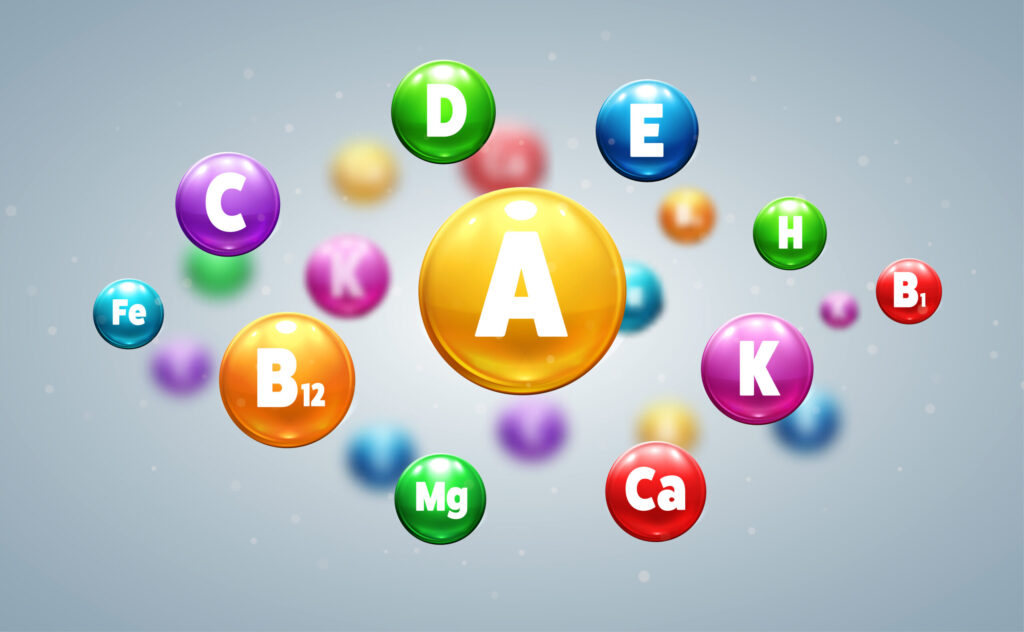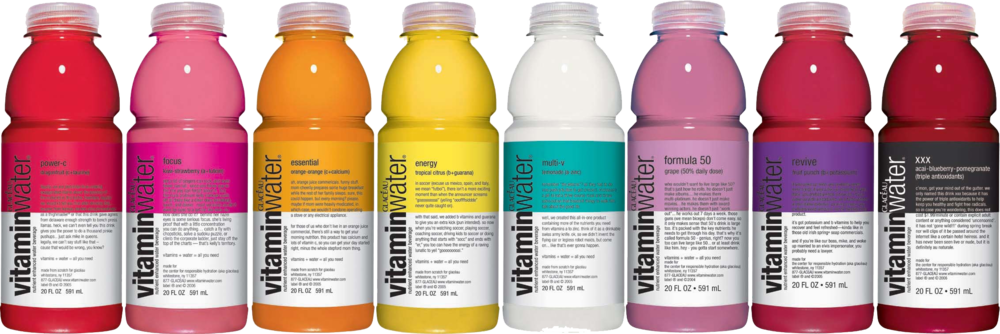
Pregnancy is a beautiful journey for every mother. It brings a multitude of responsibilities, including taking care of your health and your developing baby. Nutrition and staying hydrated played a pivotal role during this period. Both are crucial for healthy blood circulation, regulating body temperature, and supporting the baby’s growth and development. Many beverages are available, and one of them that often comes to mind is vitamin water. However, many women often wonder whether vitamin water is a suitable choice in addition to their pregnancy diet.
In this comprehensive guide, we’ll discuss: Is vitamin water good for pregnant women? We’ll explore the benefits and considerations of consuming vitamin water during pregnancy. We’ll also explore the nutritional needs of expecting mothers, the nutritional contents of vitamin waters, and the alternatives to vitamin waters. So, let’s get right into it!
What is Vitamin Water, and How Does it Differ from Regular Water?
Vitamin water is a flavored beverage marketed as a healthier alternative to regular water for pregnant ladies. This fluid is typically infused with vitamins, minerals, and electrolytes, which are essential for the body’s overall functioning for the mother and the baby.
|
Vitamin Water |
Regular Water |
| Unlike regular drinking water, vitamin water often contains added sugars and calories to enhance the taste. It also contains artificial sweeteners and preservatives. It comes in various flavors, including tropical fruit, berry, and citrus. These flavors make it popular for those who find plain water boring. | Regular water, on the other hand, is simply plain water without any added sugars, vitamins, minerals, or flavors. It is calorie-free and the most natural form of hydration. Regular water plays a crucial role in maintaining different bodily functions. It is also the safest choice for staying hydrated during pregnancy. |
Understanding Nutritional Needs During Pregnancy
Before delving into whether vitamin water is suitable for pregnant women, let’s understand the nutritional needs of expectant mothers. Your body undergoes numerous changes during pregnancy, and the nutrient requirements increase significantly. They support the growth and development of the fetus.

Essential nutrients required during pregnancy include the following:
| Folic Acid | Folic acid is essential for neural tube development in the baby. |
| Iron | Required for the production of red blood cells and to prevent anemia |
| Calcium | Calcium is crucial for the development of the baby’s bones and teeth |
| Vitamin D | Vit D supports the absorption of Calcium in bones and teeth |
| Vitamin C | Vit C aids in the absorption of iron and supports the immune system. |
| DHA | Docosahexaenoic acid is essential for brain and eye development in the baby. |
| Hydration | Staying hydrated is essential for both mother and baby. |
After understanding the nutritional needs, let’s figure out the nutritional content of normal vitamin water available in the market.
Nutritional Content of Vitamin Water
As per the nutritional content of vitamin water, vitamin water varies depending on the brand and flavor. The key nutritional content of common vitamin waters include:

| Vitamins | Commonly include C, E, B5, B6, and B12 |
| Minerals | Often contain added minerals zinc and magnesium |
| Electrolytes | Electrolytes like sodium and potassium are included |
| Sweeteners | Sugars or artificial sweeteners |
| Flavors | Natural or artificial flavors to enhance taste |
The added sugars can contribute to excessive calorie intake and may lead to weight gain during pregnancy. It is essential to read the labels and choose vitamin waters low in sugar or opt for those sweetened with natural alternatives.
Note: The amounts of these nutrients in vitamin water are often minimal compared to those obtained from a balanced diet.
Is Vitamin Water Good for Pregnant Women?
Whether vitamin water is a healthy choice for pregnant women or not depends upon the potential benefits they get from it or the potential risks or drawbacks. Here are the potential benefits and possible drawbacks available in vitamin water for pregnant ladies:
The Potential Benefits of Vitamin Water for Pregnant Women
Although vitamin water may not be necessary for everyone, you can get some potential benefits from being a pregnant woman. These are:
- Boosting Nutrient Intake – Pregnancy demands an increased nutritional intake. These vitamin waters can be a supplementary source of essential vitamins and minerals that help support both the mother’s and baby’s health. Women who struggle to meet their nutritional needs through food alone can use vitamin water as a convenient way to supplement their diet.
- Easy Hydration – Staying hydrated during pregnancy is vital for women. Vitamin water can help them stay hydrated and prevent dehydration. With their appealing flavors, these waters can encourage more frequent fluid intake.
- Variety in Diet – Adding vitamin water to your diet provides a change from your regular water intake. This change makes their diet more varied and enjoyable.
The Potential Drawbacks and Risks of Vitamin Water During Pregnancy
Despite multiple benefits, vitamin water has potential risks and drawbacks for pregnant women. These are due to the ingredients these vitamin waters contain. Some of the ingredients and their potential risks and drawbacks include:
- Excess Sugar and Calories – Some vitamin waters have high contents of sugar and calories that can lead to gestational diabetes and other complications like high blood pressure.
- Artificial Sweeteners – The impact of artificial sweeteners on pregnancy is still under discussion. It’s essential to be cautious about consuming them. Artificial sweeteners can cause weight gain during pregnancy.
- Preservatives – Some preservatives like Sodium benzoate and potassium sorbate can cause infant hyperactivity and ADHD.
- Overconsumption of Vitamins – Excess intake of specific vitamins like Vit A And E through vitamin water can harm pregnant women.
- High Doses – Certain nutrients, such as Vit B6 and B12 can be harmful in high doses during pregnancy.
It is highly recommended that pregnant women must consult with their healthcare provider before consuming vitamin water. Women should be cautious about taking supplements and should always read the labels carefully. Moreover, consuming large amounts of vitamin water can lead to a nutrient imbalance. Obtaining essential vitamins and minerals from a well-balanced diet is always better than relying solely on fortified beverages.
Step-by-Step Guide: Choosing the Right Vitamin Water
You can follow these steps to choose the proper vitamin water for you:

Step 1: Read the Label Carefully
Read the label of vitamin water carefully. Check for the amount of sugar, type of sweeteners, and the types and quantities of vitamins and minerals.
Step 2: Consult Your Healthcare Provider
Before adding vitamin water and other supplements to your diet, it’s crucial to consult your healthcare provider.
Step 3: Moderation is Key
If your healthcare provider has approved vitamin water in your diet, consume it in moderation. Consider other dietary sources of nutrients as well.
Step 4: Stay Informed
Keep up-to-date with the latest research and recommendations for vitamin water and other nutrition sources.
Alternatives to Vitamin Water for Staying Hydrated During Pregnancy
If you’re looking for alternatives to vitamin water, several options can help you stay hydrated during pregnancy. The following are some of the best possible options:
| Alternative Drinks | Nutritional Benefits |
| Plain Water | It is always the best choice to stay hydrated. It is calorie-free and essential for pregnant women. You can also add slices of fruits like lemon, cucumber, or berries to infuse some natural flavor. |
| Fruit Juices | 100% fruit juice without added sugar or calories can be a good source of vitamins and minerals for pregnant women. However, it is high in natural sugars, so always consume it in moderation. |
| Herbal or Decaffeinated Teas | Decaffeinated tea, coffee, and herbal teas can be other excellent sources of hydration and fluids. Some options during pregnancy include chamomile, ginger, and peppermint tea. |
| Milk | Milk is an excellent source of Calcium and vitamin D. These are essential for bone health. Low-fat milk is recommended to avoid unnecessary calories and saturated fats. |
| Coconut Water | It is a natural electrolyte-rich drink that can help to prevent dehydration. It is naturally low in calories and contains nutrients that can replenish the lost nutrients. However, always opt for a brand that does not contain added sugars or flavors. |
It is also essential to avoid certain drinks during pregnancy, including:

- Alcohol
- Energy drinks
- Soft drinks
- Fruit drinks with added sugars
- Unpasteurized juices or milk
Concluding Thoughts
Nutrition, staying informed, and making mindful choices are key in pregnancy. Staying hydrated and getting essential nutrients during pregnancy is essential for the well-being of the mother and the developing baby. Vitamin water can benefit a pregnant woman’s diet when chosen carefully and consumed in moderation. Despite having multiple benefits, it is essential to consider the potential risks and drawbacks discussed here. Always consult a healthcare provider to determine the best choices for your circumstances. Ultimately, plain water is the safest and the most natural option for hydration during pregnancy. Remember the points discussed here if you’re considering reaching for a bottle of vitamin water. Make a choice that’s best for you and your baby!
FAQ: Is Vitamin Water a Healthy Choice for Pregnant Women?
Q.1: Are there any specific vitamins in vitamin water that are beneficial for pregnant women?
Vitamin water can contain vitamins such as B vitamins, Vitamin C, and Vitamin D, which are beneficial during pregnancy. However, the concentration of these vitamins in vitamin water might not be enough to meet pregnancy nutritional needs. It’s always best to consult with a healthcare provider for personalized advice.
Q.2: Can vitamin water replace prenatal vitamins?
No, vitamin water should not replace prenatal vitamins. Prenatal vitamins are specially formulated to meet the increased nutritional needs of pregnant women and ensure the healthy development of the fetus. Vitamin water can be a supplemental source of hydration and nutrients but not a substitute for prenatal care.
Q.3: How much vitamin water is safe to consume during pregnancy?
The safe amount depends on the specific product’s contents. It’s essential to read the label and be mindful of the daily intake of vitamins and minerals. Overconsumption of certain nutrients can be harmful during pregnancy. Stick to the recommended daily water intake and use vitamin water sparingly.
Q.4: Are there any risks associated with drinking vitamin water while pregnant?
If the vitamin water contains high levels of sugar or caffeine, it could contribute to unwanted weight gain or other health issues. Excessive intake of certain vitamins and minerals can also be harmful. Always check the label and consult with a healthcare provider.
Q.5: What should I look for when choosing vitamin water during pregnancy?
Look for vitamin water with no added sugar, low calories, and without artificial colors or flavors. Also, check for vitamins and minerals that are beneficial during pregnancy in appropriate amounts.
Q.6: Can vitamin water help with morning sickness?
Some pregnant women might find that sipping flavored water, including certain types of vitamin water, can help alleviate morning sickness. However, it’s crucial to choose options without too much sugar or strong flavors that might exacerbate nausea.
Q.7: Is it better to drink plain water or vitamin water during pregnancy?
Plain water is the best choice for staying hydrated during pregnancy. While vitamin water can be consumed occasionally for variety, it should not replace plain water as the main source of hydration.
Q.8: Can consuming too much vitamin water be harmful during pregnancy?
Yes, consuming too much vitamin water, especially varieties high in sugar, caffeine, or certain vitamins and minerals, can be harmful. It’s important to maintain a balanced diet and not exceed recommended daily intakes of nutrients, which can vary during pregnancy. Always consult with a healthcare provider before making significant changes to your diet or vitamin intake.

